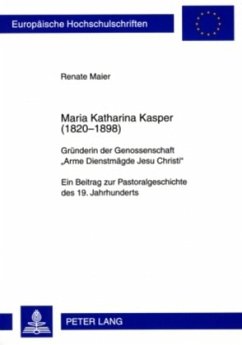
Histories that Mansoul and Her Wars Anatomize
The Drama of Redemption in John Bunyan's Holy War
Herausgegeben von Selderhuis, Herman J.

PAYBACK Punkte
0 °P sammeln!
Robert McKelvey argues that John Bunyan wrote The Holy War as a warfare allegory symbolizing the salvation history of Scripture from a Calvinistic-covenantal perspective. In this cosmic drama of redemption, the "Histories That Mansoul, and her Wars Anatomize" include the individual-soteric-microcosmic level or ordo salutis unfolding analogous to the redemptive-historical-macrocosmic level or historia salutis. The eternal covenant of redemption provides the foundation for this history of salvation, which progresses from creation to the anticipation of consummation. This scheme finds its roots i...
Robert McKelvey argues that John Bunyan wrote The Holy War as a warfare allegory symbolizing the salvation history of Scripture from a Calvinistic-covenantal perspective. In this cosmic drama of redemption, the "Histories That Mansoul, and her Wars Anatomize" include the individual-soteric-microcosmic level or ordo salutis unfolding analogous to the redemptive-historical-macrocosmic level or historia salutis. The eternal covenant of redemption provides the foundation for this history of salvation, which progresses from creation to the anticipation of consummation. This scheme finds its roots in the Puritan philosophy of "universal history" which sees all historical events serving God's redemptive purposes. The individual, through union with Christ founded on election, participates in the drama by inclusion within the trans-historical covenant of grace. As a depiction of cosmic war, The Holy War sets forth the enmity between the church and Antichrist, which is representative of the greater battle between Christ and the devil from Genesis to Revelation. As a pastoral guide to persecuted saints, Bunyan retrospectively rehearses the history of redemption to grant comfort. In addition, he prospectively reveals the consummation of redemption to encourage perseverance and instil eschatological hope. This thesis is substantiated contextually through Bunyan's life and writings, historiographically by surveying the history of Holy War interpretation, pre-textually by examining the introduction to the allegory, and textually by analyzing the allegory itself.
Dieser Artikel kann nur an eine deutsche Lieferadresse ausgeliefert werden.













